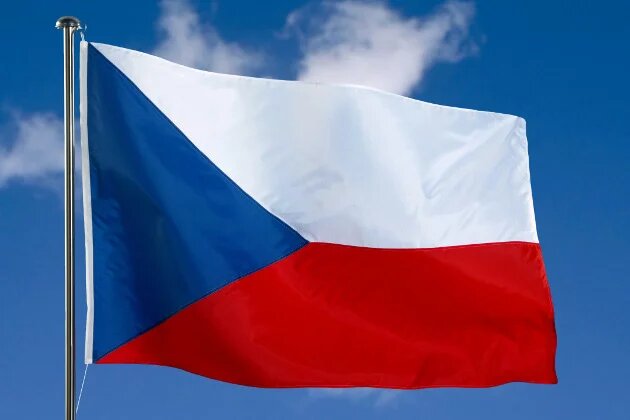

Gender policy, politics and resources in the Czech Republic
Legal situation:
- Equal opportunities law
- Ministry Of Labour And Social Affairs
- The Government Council for Equal Opportunities for Women and Men
- The Committee on the Elimination of All Forms of Discrimination Against Women
- Anti-discrimination law
- Laws on quotas, in particular in the political and economic sectors
- Further laws/legislative provisions and government programmes
- Educational Activities In The Area Of Equal Opportunities
- Current political discourse
Protagonists:
Academia:
Short description and evaluation
The Czech constitution was the first in Europe to explicitly formulate the equality of men and women. Thanks to the efforts of lawyer Milada Horáková, the term ‘patriarch’ was removed from Czech family law. The communist era brought this progress to a halt, and in fact even contributed to women’s exclusion from politics. The general elections of 2010 resulted in major change in the Czech political party landscape. The Social Democratic party won, but did not achieve an absolute majority. There are no women in office in the government ministries, which is a telling sign of largely underdeveloped gender politics.
In the first six months of 2009, the work programme of the Czech presidency of the EU Council campaigned more for domestic childcare than for modern gender politics. The European Union’s so-called Barcelona targets, which aim to provide sufficient childcare places by 2010, are thus being called into question by individual member states. Adequate childcare services are, however, a central precondition for achieving a satisfactory work/family balance and for allowing mothers and fathers to return to work after having children. The project failed, however, due to opposition from the EU Parliament. Family politics, not gender mainstreaming, predominates. The initiative of the Czech government at that time is an indication that equal opportunities policies in the Czech Republic are reduced to work/family balance issues and thus are viewed as being matters concerning family politics.
Since 1989 there has been no public campaign, not even on the part of women’s organisations, to involve more women in politics. Intensive activities promoting equality between men and women first began in 1997. There was a small sensation in 1998 when two women, Vlasta Parkanova and Zuzana Roithova, were elected to the senate. With that, the qualifying attribute ‘masculine’ for politicians became obsolete. Equality between men and women has been implemented within the legal system but not yet in society at large. There are still far too many gender clichés which are difficult to overcome (such as the typical gender-specific distribution of tasks in the home and in caring professions). As a matter of principle, Czech society looks favourably on equality of the sexes, in particular as regards equal opportunities in employment and a ban on any form of discrimination whatsoever. However, specific activities, such as quotas and monitoring, are not welcomed.
In 2002, the Ministry of Labour and Social Affairs prepared an employee analysis focusing on gender, which brought to light the unequal positions of men and women on the labour market that work to the detriment of women. Key issues in this context are the pay gap, higher rates of unemployment among women and underrepresentation of women in senior management positions. Government bodies and non-governmental organisations (NGOs) are attempting to change stereotypical attitudes in the daily lives of men and women by means of jointly organised programmes. It is apparent that ‘Czech society’ is making good progress towards gender equality thanks to the meshing of government policies with regard to equal opportunities, legislative measures, and educational measures and projects.
The enormous disparity in salaries between men and women – in particular at executive management level and at universities – is still an important issue in 2010, though not for the government. On average, women earn about 2,100 euros less per year than men do. This difference represents 26.2%, the second-highest percentage in the European Union (source: euranet, German). On the other hand, at 9% the Czech Republic has, for the EU, a relatively high percentage of women who head companies traded on the stock exchange.
Legal situation
Equal opportunities law
The Government Priorities and Policies for the Promotion of Equality Between Men and Women recognise that gender mainstreaming is one of the basic tools of the Czech government’s equal opportunities policy. According to paragraph 1.8 of this document, all public authorities must apply the equal opportunities principle at all stages of their decision-making and policy development processes.
For the time being, this tool is mostly underused because the authorities concerned are not familiar enough with the principle and its application methods. The key priority for the government continues to be the fulfilment and consistent promotion of the principle of equal opportunities in practice. The basic means for achieving this goal is the effective practice of gender mainstreaming in all material policies that affect the everyday lives of men and women.
Government Resolution No. 456 of 9 May 2001 ordered all departments to create from 1 January 2002 one (at least half-time) vacancy for an employee (Gender Focal Point) who would dedicate all of her or his work time to promoting equal opportunities for men and women. The Government Council for Equal Opportunities for Women and Men became operational in 2002.
It had been set up by Government Resolution No. 1033 of 10 October 2001 as the government’s advisory body. The Government Council for Equal Opportunities for Women and Men, hereafter referred to as ‘the Council’, is a permanent government advisory body whose aim is to create equal opportunities for women and men.
The Council draws up proposals for the promotion and achievement of equal opportunities for women and men. In particular, the Council:
- discusses and recommends to the government basic policies for implementing equal opportunities for women and men
- coordinates the main objectives of ministerial policies in the area of equal opportunities for women and men
- sets a range of priorities for ministerial projects supporting the implementation of equal opportunities for women and men
- identifies current problems in society related to equal opportunities for women and men in the public sphere
- evaluates the efficiency of the implementation of the principle of equality between women and men
The main goals that the Czech Republic should achieve with respect to equality between men and women are the following:
- improve the institutional mechanism to ensure equality between men and women
- strengthen public awareness of equal opportunities
- strengthen awareness of equal opportunities for men and women on an individual level
- increase the number women in executive positions
- achieve gradual change of stereotypical thinking and behaviour in Czech society
continue with cooperation and exchange of information with both EU member states and candidate countries
Ministry Of Labour And Social Affairs
The website of the Ministry of Labour and Social Affairs (English) includes a link to various materials and documents concerning equality between men and women. The website also gives a list of NGOs working in the area of equality between men and women.
The Ministry Of Labour And Social Affairs also coordinates the Government Council for Equal Opportunities for Women and Men.
Experts from the Ministry of Labour and Social Affairs regularly speak to the press about the status of women on the labour market and the issue of equal pay. The Ministry of Labour and Social Affairs is responsible for the overall coordination of all national efforts in support of equal opportunities for women and men.
The coordinating function of this ministry is administered by its Gender Equality Office of the European Integration and Foreign Relations Section. The office also serves as the secretariat of the Government Council for Equal Opportunities.
There is no special state budget allocation for the promotion of equal opportunities or for the advancement of women. The necessary funds are provided from the budget allocations of individual ministries. The Ministry of Labour and Social Affairs thus finances the coordinating functions as well as the work of the Government Council for Equal Opportunities.
The Government Council for Equal Opportunities for Women and Men
The Council is a permanent government advisory body whose aim is to create equal opportunities for women and men. The Council was established by Government Resolution No. 1033 of 10 October 2001. Ms. Anna Curdová was appointed chairperson by Government Resolution No. 1095 of 6 November 2002.
The Council draws up proposals for the promotion and achievement of equal opportunities for women and men. In particular, the Council:
- discusses and recommends to the government basic policies for implementing equal opportunities for women and men
- coordinates the main objectives of ministerial policies in the area of equal opportunities for women and men
- sets a range of priorities for ministerial projects supporting the implementation of equal opportunities for women and men
- identifies current problems in society related to equal opportunities for women and men in the public sphere, and
- evaluates the efficiency of the implementation of the principle of equality between women and men.
The Council sessions are held as needed, or at least three times a year. The public can access information about the Council’s activities on the government’s web pages and the web pages of the Ministry of Labour and Social Affairs.
The Council does not have the power to investigate citizen complaints about the violation of the principle of equality for women and men. Organisational, administrative and expert tasks and the releasing and updating of information about the Council’s activities are handled by the Council secretariat, which is part of the Ministry of Labour and Social Affairs organisational structure.
Address:
Ministerstvo práce a sociálních vecí
Na Porícním právu 1
128 01 Praha 2
Phone: +420 2 2192 2583
Fax: +420 2 2192 3126
The Committee on the Elimination of All Forms of Discrimination Against Women
is part of the government’s Human Rights Council (HRC). Its work is coordinated by the secretary of the HRC. It is a government advisory body created to make proposals and recommendations concerning human rights legislation. This HRC committee comprises representatives from NGOs, academia and certain executive authorities. The work of the committee is funded from a budget allocation by the Government Office
This law has been in existence since December 2004. It was not possible to find an Internet link. A quotation from Radio Prague provides a basic description: ‘Citizens are to receive greater protection against discrimination on the basis of their gender, age, health, nationality, religion, sexual orientation, political ideology or membership in a political party. On Wednesday the cabinet passed the so-called Anti-discrimination Law, which is intended to achieve this. Supervision of non-discriminatory treatment of all individuals will fall under the competence of the ombudsman. An alternative option to establish a new office, the so-called Centre for Equal Treatment, was rejected.’
Laws on quotas, in particular in the political and economic sectors
Quotas for women in politics were long viewed as being left-wing and thus met with resistance (there was a 30% quota during the Communist era). This situation began to change in the late 1990s; it is still, however, extremely difficult to win broad support for demands related to greater opportunities for women in society. The Social Democratic Party (SSD) is the only one to have a quota for women, namely, 25% for all offices. In 2006 the Czech parliament passed a law regulating same-sex partnerships, making the Czech Republic the first post-Communist state to do so. These partnerships are not, however, given the same status as marriages, and partners are explicitly refused the right to adopt children.
Further laws/legislative provisions and government programmes
Various guidelines and laws have been enacted by the Ministry of Labour and Social Affairs (English).
Gender Projects
- As the first candidate country, the Czech Republic had joined the first round of the Community initiative EQUAL in 2001. Seven of nine thematic fields were selected in the Czech Republic for the first round.
- In 2002, the Ministry of Labour and Social Affairs began talks with the European Commission on the matter of involvement of the Czech Republic in the Community programme European Commission Framework Strategy for Equality Between Men and Women (Fifth Community Programme).
- In August 2002, the Ministry of Labour and Social Affairs launched a ‘Twinning Project’ directed at improving institutional safeguards for equal opportunities for men and women within the framework of the PHARE programme. This project reviews the existing institutional safeguards and their proposed vertical and horizontal structure at the national and local levels. Sweden was chosen for the implementation of the project because its practical results in the promotion of equality between men and women are widely recognised.
- In the area of equal opportunities for men and women, the Czech Women’s Union, together with more than twenty organisations, launched a project in October 2002 which aimed at harmonising family and professional life. The project ended in 2005.
- The Ministry of Finance prepared an updated educational project on human rights which focused on the promotion of the principle of equal opportunities for men and women. The project’s pilot event was the seminar ‘Promotion of Equal Opportunities for Men and Women’, which was held in November 2002 and attended by 23 senior officers. This event was followed by the seminar ‘Genderissue in Practice’, which concentrated on changing attitudes to gender issues, the identification of possible shortcomings leading to discrimination on the grounds of sex, and the setting of intermediate objectives to eliminate such shortcomings.
Educational Activities In The Area Of Equal Opportunities
The process of educating civil servants in the matter of equal opportunities for men and women, including methods of gender mainstreaming, has begun in most ministries. Most of them have already run at least basic training courses in cooperation with the Ministry of Labour and Social Affairs, the Department of Social Work at the Faculty of Philosophy of Charles University, and the organisation Gender Studies o.p.s.
An important contribution to the education of civil servants in issues of gender equality was made by the Friedrich Ebert Foundation, which committed to further cooperation with the Ministry of Labour and Social Affairs. In 2002, the ministry included ‘Public Discussion’, a regular column on issues of equality between men and women, in its magazine Social Policy.
One requisite for public discussion is sufficient information available to the public, and the ministry provides this information on its website. Giving information on issues of equality between men and women: The Ministry of Labour and Social Affairs (MoLSA) (Czech, English).
The Ministry of Labour and Social Affairs also publishes handbooks for the implementation of equal opportunities policy. In 2002 it published a detailed handbook entitled Gender Mainstreaming (124 pages); the handbook Principles of Non-discrimination in European Union Law (160 pages), which includes the European Union Directives and other documents on equality between men and women; and a basic guide for the general public, Equal Rights and Opportunities for Men and Women in the European Union (22 pages).
The official political agenda does not include any explicit equal opportunities issues. The bodies created to advance equal opportunities continue to work without any noteworthy campaigns; on the other hand, they have not been subject to any considerable cuts following the change of government.
There is not a single woman in government office, a circumstance loudly criticised by equal opportunities advocates and feminists. Political issues continue to concentrate on the work/family balance and, within this field, on the provision of sufficient childcare places for pre-school children.
Protagonists
NGOs: Parties, organisations within civil society
Asociace Pro Rovné Prílezitosti Muzu A Zen (Association For Equal Opportunities Of Men And Women - Website in Czech):
Jansová Eliska
Gorazdova 20
Praha 2
Email: gender.office@ecn.cz
Národní Kontaktní Centrum - Zeny A Veda (National Contact Centre – Women In Science, in Czech and National Contact Centre – Women & Science, in English):
V Kolkovne 3
110 00 Prague 1
Phone: +420 222 222 32
Fax: +420 222 220 143
E-mail: info@zenyaveda.cz
This project of the Institute of Sociology, Academy of Sciences of the Czech Republic, is financed by the Ministry of Education, Youth and Sports under the EUPRO programme..
Athena - Association for Education and Development of Women (Czech, English):
This NGO works in the field of education and qualification of women as well as of other disadvantaged groups, such as seniors and ethnic minorities. It also addresses issues relating to gender awareness in educational content.
Czech Helsinki Commitee (Czech, English):
This organisation promotes a range of issues in the fields of human rights and democracy. Among other activities, it runs projects advancing equal opportunities for women on the labour market and for partnership in the family.
Ceský svaz žen (Czech Women’s Union, Czech and, in some areas, English):
The Czech Women’s Union aims to achieve equal opportunities for women and men. With offices in all Czech regions, it is the umbrella organisation for diverse NGOs and grassroots units pursuing issues related to equal opportunities and/or women.
Rada Vlády Pro Rovné Prílezitosti Zen A Muzu (Government Council For Equal Opportunities For Women And Men, English):
Government Office
Nábreží E. Beneše 4
118 01 Prague 1
Phone: 224 002 111
E-mail: posta@vlada.cz
Director: Pavla Špondrová,
Phone: 224 002 140
E-mail: spondrova.pavla@vlada.cz
Genderstudies (Czech, English):
This non-profit NGO dedicated to equal opportunities for men and women aims to achieve its goals by means of awareness campaigns and similar activities. It has excellent links and a competent staff comprised of academics and researchers.
Academia
Universities
Department Of Gender Studies, University Of Prague (Czeck, English):
Academic networks are well established in the Czech Republic, and several universities work in the field.
Fakulta Sociálních Studií Masarykovy Univerzity (Faculty Of Social Studies, Masaryk University – Webite in Czech and English) and Gender Centrum (Czech):
Gender centrum
Fakulta sociálních studií MU
Katedra sociologie / genderová studia
Joštova 10
602 00 Brno
E-mail: gender@fss.muni.cz
Genderové informacní centrum NORA (Gender Information Centre NORA, Czech):
The centre originated from an academic initiative and serves as a platform for information about gender and gender-related issues, campaigns and publications. It publishes the feminist magazine FEMA, among others.
Genderové informacní centrum NORA, o.p.s.
Ševcenkova 2
Brno - Bosonohy 642 00
Description of the status of source material:
The status of source material is not particularly good; a large amount is available in Czech only. Through networking, however, it is possible to find plenty of material on the Internet and in specialist literature; not all of it is up to date, but in many areas it is still valid. As an immediate neighbour of Germany, the Czech Republic is well documented.
Citation of relevant sources:
Rovné příležitosti (Czech, some parts English):
This website provides examples of good practice and contact details to the Institute of Gender Studies in Prague. It publishes, among other things, the Company of the Year selected according to gender criteria.
Projekt Gender Management (Czech, some English):
The project Gender Management promotes equal opportunities in the Czech Republic.
Gender and Sociology (Czech):
A website on gender and sociology
feminismus.cz (Czech, English):
A comprehensive website with a discussion forum and many other links as well as texts and information. Gender Studies, o.p.s.
Marksová-Tominová Mísa
Gorazdova 20 Praha 2
Email: gender.office@ecn.cz
Central Europen Centre for Women and Youth in Science (English):
This site gives a short description of the key political bodies and policies concerning gender equality in the Czech Republic (currently not completely up to date).
Michaela Marksova-Tominova, „Der Unmut wächst: politische Partizipation von Frauen in Tschechien im Wandel“ [Growing Resentment: The Changing Political Participation of Women in the Czech Republic], in: Hoecker/Fuchs, Handbuch Politische Partizipation von Frauen in Europa, Band II, Verlag für Sozialwissenschaften (VS), Wiesbaden 2004
Jirina Siklova, „Welcher Feminismus existiert im Postkommunismus? Ein deutschtschechischer Vergleich, in: Jünemann/Klement (Hrsg.) „Die Gleichstellungspolitik in der Europäischen Union [Equal Opportunities Policies in the European Union], Schriftenreihe des Arbeitskreises Europäische Integration e.V., Nomos Verlagsgesellschaft, Baden-Baden 2005
This study was conducted by Tanja Berger und Pamela Dorsch and comissioned by the Gunda Werner Institute of the Heinrich Böll Foundation in 2010.
All images, except marked otherwise: Public Domain CC0

